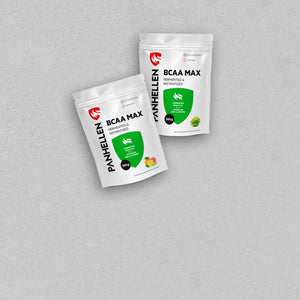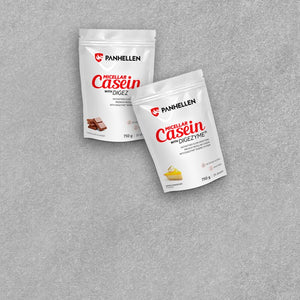FACTS ABOUT VITAMIN C

Although the biological importance of vitamin C (also known as ascorbic acid) has been known since the 20th century. recognized in the first half of the 20th century, to this day there is a lot of, even contradictory, information about the daily recommended amount and/or supplementation of ascorbic acid.
CONFLICTING DATA
According to the official definition, organic compounds that are essential for the human body in small amounts are called vitamins. But what is the daily recommended amount of vitamin C? The recommendation that is still valid today was set in 1950, which is 60-80 mg per day. This is just enough to protect us from the dreaded disease, scurvy. Scientists are also aware of this, yet to this day we can read this amount as the recommended intake value. It is not enough that lay people do not receive authentic information, their uncertainty is increased even more by the fact that the opinions of experts are also divided on the subject. Some claim that a varied, balanced diet does not require vitamin C supplementation. According to another group, the agricultural or due to industrial development, our food does not have such a nutritional value (including mineral and vitamin content) that we can cover the daily vitamin requirement with our food, so supplementation is definitely necessary. There are also those who swear by megadose vitamin C therapy. It is therefore no coincidence that the market for dietary supplements is getting wider and the demand for new products is increasing day by day.

WIDE RANGE MECHANISM OF EFFECT
First of all, the most important thing to keep in mind is that the biological effects of ascorbic acid are wide-ranging, and its task is not only the generally mentioned strengthening of the immune system. Among other things, it helps maintain the integrity of connective tissues, muscles, tendons, bones or, for example, the skin; moreover, it has a role in the reconstruction of all these. Participates in detoxification processes; activates many enzymes; protects against free radicals; helps with bile secretion and iron absorption; it enhances wound healing and may also enhance fertility. Due to its diverse range of tasks, the recommended 60-80 mg per day is not enough to exert its wide-ranging effects. All of this is further strengthened by the fact that modern people are affected by more and more harmful environmental effects (e.g. environmental pollution, stress), which can increase the daily need. But exactly how much?
HOW MUCH VITAMIN C DO WE NEED?
We can easily cover the minimum vitamin C requirement (80-100 mg) if we follow the nutritional recommendations and eat 5-6 servings (half a kg) of vegetables and fruits per day. However, the increased demands (e.g. in the case of athletes) require a high degree of awareness, advance planning (which is time), adequate knowledge of food and kitchen technology, and the currently available vegetables and fruits do not contain as much vitamin C as they used to. That is why the supplement can be considered. However, there is no harm in this case, if we do not use dietary supplements without reason.
The ascorbic acid requirement of an average, sedentary adult starts at 200-400 mg. In the case of people who regularly take contraceptives, athletes, and people who perform a high degree of mental or heavy physical work, this amount can even increase several times. In the case of a febrile, infectious disease, of course, the need for vitamin C also increases in the short term.
The researchers set the upper limit of the intake value at 2000 mg , which does not cause damage even in the long term for healthy people. If someone wants to increase their intake to this value, gradually increase the dosage so that the body can adapt. Diarrhea, skin rash, skin itching or malaise may also occur when the dose is increased suddenly. It is important to point out that prolonged intake of 2000 mg per day can be a risk factor for individuals prone to kidney stones and kidney disease. So those who are prone to the aforementioned diseases should not exceed the daily limit of 1000 mg.
Comparing the results and experiences, the effective and safe intake of vitamin C can normally be determined between 500-1000 mg. Use the former value in the late spring, summer, and early fall months and weeks, and increase your intake to 1,000 mg per day in the cooler months. To achieve the maximum effect, take the vitamin C tablet during or after a meal.

WHAT IS A GOOD VITAMIN C PREPARATION?
In order to achieve the maximum vitamin effect, it is worth following some practical advice. Vitamin C is a water-soluble vitamin, meaning it is not stored; we have to take care of its replacement every day. The excess is excreted from the body with urine in 3-6 hours, so the use of megadoses is considered unjustified. Modern preparations containing vitamin C also contain bioflavonoids , which stimulate the absorption of the vitamin, thereby strengthening and completing its positive effects. It is worth noting that the utilization of ascorbic acid can be further enhanced by supplementing with calcium and magnesium.
The best vitamin C dietary supplement also includes acerola and rosehip extracts . The beneficial effects of both plants and their high vitamin and mineral content have been known for centuries, which is why they are used in folk medicine on their own to strengthen the immune system and treat diseases. The acerola fruit can contain up to 4-5% vitamin C, and it also contains considerable potassium, magnesium and vitamin A. Rosehips are mainly known for their ascorbic acid content, although they are a valuable source of vitamins B, A, P and magnesium. Vitamin P, also known as rutin, is a bioflavonoid (antioxidant) found mainly in citrus fruits, which, as a companion to vitamin C, protects vitamin C from oxidation, promoting its absorption.
SYNTHETIC AND NATURAL VITAMIN C
We distinguish between synthetically produced (D-ascorbic acid) and natural ascorbic acid (L-ascorbic acid). Both forms are found in dietary supplements, but since the L-isomer is the bioactive form, it has the full vitamin effect. Before buying, always find out about the exact composition of the supplement; look for the product containing L-ascorbic acid. Although there is no difference in the mechanism of action of vitamin C in the form of capsules, effervescent tablets, candy or powder, it is worth choosing the capsule or tablet version, which contain the vitamin in a stable form - i.e. they break down less when exposed to heat or light.

C-800 ULTRA
Ingredients of natural origin, active ingredients that help absorption, broad biological effect
- Active ingredients that help absorption
- Wide biological effect
- Ingredients of natural origin













